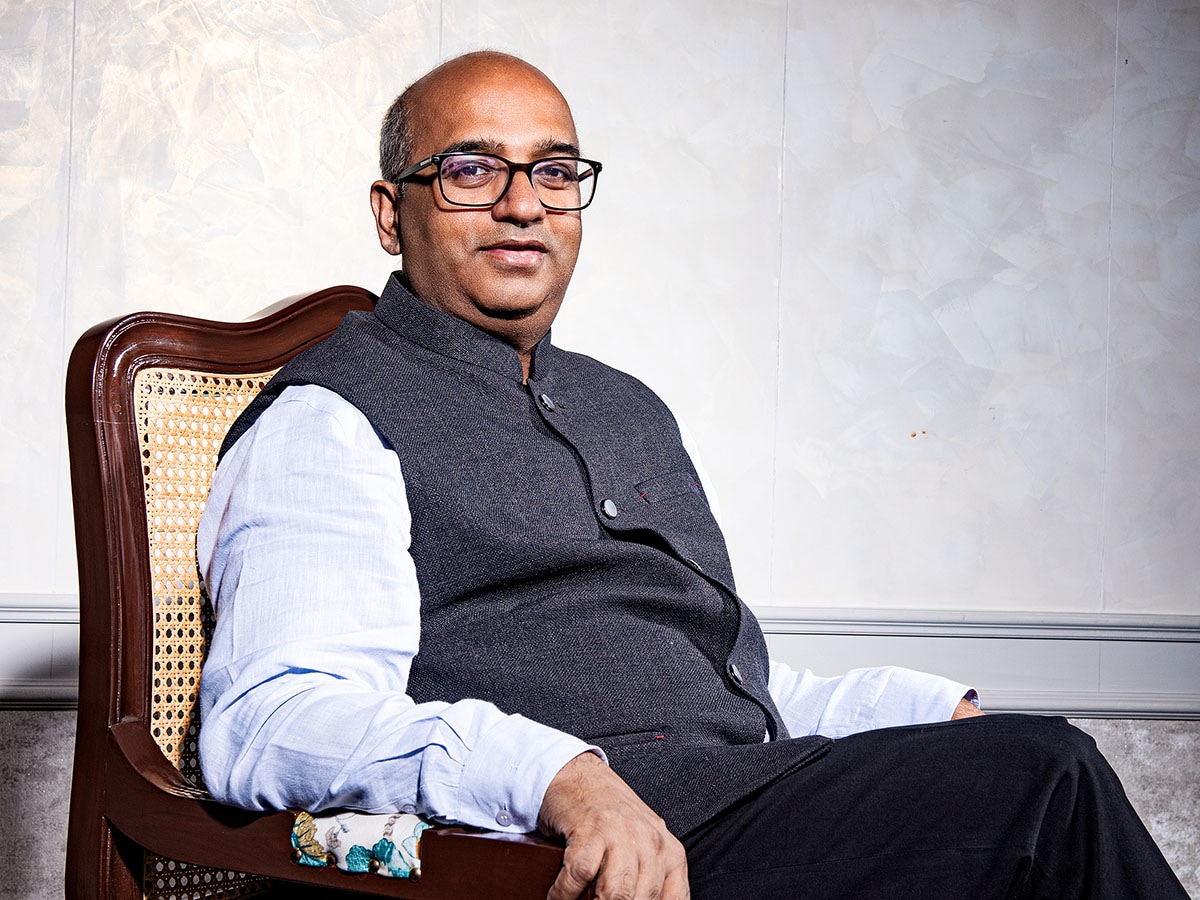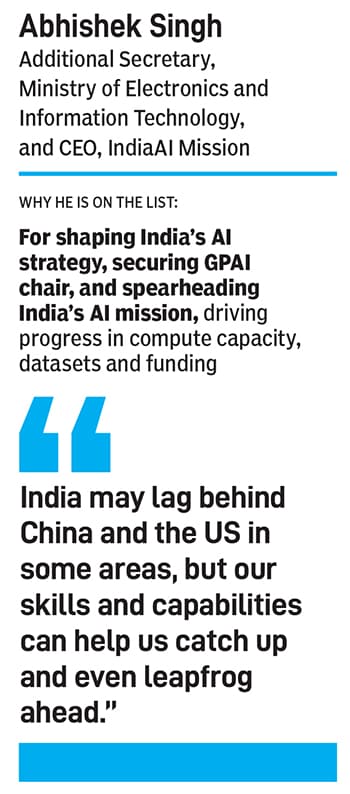
How seasoned IAS officer Abhishek Singh is leading India's AI mission
A 1995-batch IAS officer with over two decades of experience, Singh has learnt the ins and outs of governance. Now, he is leading India's AI mission with a focus on foundational models, applications to leapfrog global competitors
 Abhishek Singh, Additional Secretary, Ministry of Electronics and Information Technology, and CEO, IndiaAI Mission
Image: Amit Verma
Abhishek Singh, Additional Secretary, Ministry of Electronics and Information Technology, and CEO, IndiaAI Mission
Image: Amit Verma
Abhishek Singh’s career trajectory has taken him down some unexpected paths, like building roads, schools and hospitals, and even managing crisis situations like droughts and communal riots. A 1995-batch IAS officer with over two decades of experience, Singh has learnt the ins and outs of governance. Now, he is leading India’s AI mission.
“I’ve been working on AI initiatives since 2018, and the AI strategy got approved in 2019,” Singh says. Fast forward to 2024, the IndiaAI Mission was launched, and Singh’s work took on a new dimension. “It’s been a long journey, but we’re finally seeing the pieces come together,” he adds.
Singh has been a part of Digital India and collaborated on securing approvals for the Global Partnership on Artificial Intelligence (GPAI) chair. India was chosen to take over as the council chair in November 2022. The IIT-Kanpur alumnus is currently posted as additional secretary, Ministry of Electronics and Information Technology, and chief executive officer of the IndiaAI mission.
 India’s national strategy for AI aims to establish the country as a strong AI workforce and leverage AI for public services, value creation, startup support and job creation, explains Singh. “To achieve this, we formed working groups with academia, researchers, startups and entrepreneurs to identify gaps.” These gaps include compute capacity, lack of Indian foundation models, need for dataset platforms, support for skilling and startups, development of applications, and tools for safe and trusted AI.
India’s national strategy for AI aims to establish the country as a strong AI workforce and leverage AI for public services, value creation, startup support and job creation, explains Singh. “To achieve this, we formed working groups with academia, researchers, startups and entrepreneurs to identify gaps.” These gaps include compute capacity, lack of Indian foundation models, need for dataset platforms, support for skilling and startups, development of applications, and tools for safe and trusted AI.
Such findings led to the development of a seven-pillar approach through a consultative process with key stakeholders. The plan is a whole-of-government initiative, recognising that AI cuts across domains like health care, education, logistics and agriculture. “Our strategy aims to build AI applications and models across the ecosystem, fostering a collaborative approach to AI development and adoption,” he adds.
(This story appears in the 13 June, 2025 issue of Forbes India. To visit our Archives, click here.)


















